MACQ'S SUCCESSES
SOME OF OUR LATEST PROJECTS
Belgium: City of Namur
The
province of Namur, Belgium, is a major urban area with a population of 500,000.
The city is a leader in the use of new technologies to preserve and improve the
quality of its urban environment. As in all major cities, pollution as well as traffic
and mobility problems are present. We have to take them seriously today, using
the latest cutting-edge solutions to ensure a high quality of life for the
population in city-centres.
The province of Namur is a perfect example of a city that has been able to modernize itself, thanks to the latest generation of mobility systems, all of which are interconnected and decentralized in the Cloud. First of all, the information sources are collected automatically, on the field, thanks to innovative technologies that use artificial intelligence to increase their capacity tenfold. This is what Macq offers, with different objectives:
- ANPR cameras: Namur uses CAM G3 and QCAM5 by Macq. It can deduce the speed of vehicles with official homologation, analyse behaviour and population movements
- Air quality sensors: Namur uses QSENSE-Air by Macq. Which analyse pollution, humidity, noise and other environmental data
All the data collected by the city is then processed automatically, transmitted via wireless communication networks and sent to the Cloud. This data can then be accessed and disseminated anywhere: on display signs, traveller information kiosks, or even on the city's mobile app, which can be accessed by anyone using a simple smartphone.
This is a revolution for the residents of Namur, who can now follow the activity in their city in real time, and have useful and relevant information at their fingertips. This is improving mobility, thanks to decision-making based on relevant information, and also improving general health in the city because pollution can be reduced through more careful environmental management
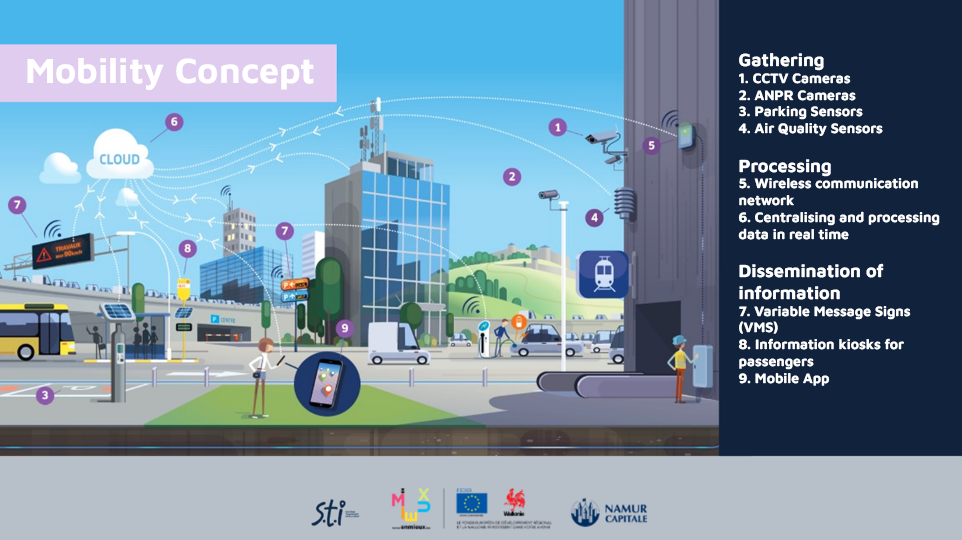

Switzerland: Grindelwald-Lauterbrunnen
In the worldwide famous Swiss Ski domain Grindelwald-Lauterbrunnen, the transportation company Jungfraubahn Holding AG wanted to enhance and simplify the parking and road journey experience for tourists to this Ski domain. The goal was therefore to implement a reliable and powerful solution for parking occupancy monitoring and measuring the travel time and the number of vehicles in that area. This information is then displayed in real-time on Variable Message Signs, so that tourists can take data-based decisions.
Jungraubahn Holding AG has chosen our measurement technology for this project. With our local Swiss partner Signal AG we delivered, installed and commissioned this solution.

Lithuania: National highways
To increase the traffic safety on the national highways in Lithuania, the Lithuanian Road Administration (LRA) wanted to implement Section Control. LRA has chosen therefore our homologated section control solution to achieve this goal. Our solution - including camera hardware and software - is designed and developed with cutting-edge technologies and has unique embedded technical features, among the most advanced in the world. With our local Lithuanian partner TeamLT we provide LRA with the desired solution and the local services.

Lithuania: City of Vilnius
Vilnius City, the capital of Lithuania, wanted to increase the traffic safety on the City's roads. LRA has chosen therefore our homologated section control solution to achieve this goal. Our solution - including hardware and software - is designed and developed with cutting-edge technologies and has unique embedded technical features. With our local Lithuanian partner TeamLT we provide Vilnius City with the desired solution and the local services.
Australia: Tasmania
In an exciting triumph, Macq proudly announces a transformative smart mobility project in Australia with our trusted partner Sensys Gatso. We are thrilled to share that Tasmania Police has placed trust in us for this superb initiative. The collaboration with Sensys Gatso ensures a synergy that guarantees seamless integration and maximizes localized expertise. We are looking forward to continuing our journey of innovation and collaboration on an international scale.
- Mobile P2P (Point-to-Point):
Our smart mobility solutions extend beyond traditional methods and will provide a dynamic mobile Point-to-Point system that enhances traffic control and monitoring capabilities. The initiative to deploy average speed section control will empower Tasmania Police to enforce speed limits effectively, contributing to safer road conditions.
- Verification of Blacklisted Vehicles:
Our technology will also allow a robust system for identifying and verifying hotlisted vehicles, enabling swift and decisive action against potential threats.
- Integration Excellence:
The Macq M3 back office and Sensys Gatso Back Office Xilium and will be integrated representing a seamless collaboration of technologies, ensuring a unified and efficient system.
Belgium: Border control by Macq
A few years ago, the Belgian government made a strategic decision to enhance border security by investing in a high-performance border control system, incorporating cutting-edge ANPR cameras provided by Macq.
Presently, entering or exiting Belgian territory without detection is no longer feasible, thanks to the robust capabilities of this border control system. This implementation significantly empowers the government to heighten the safety measures for its citizens.

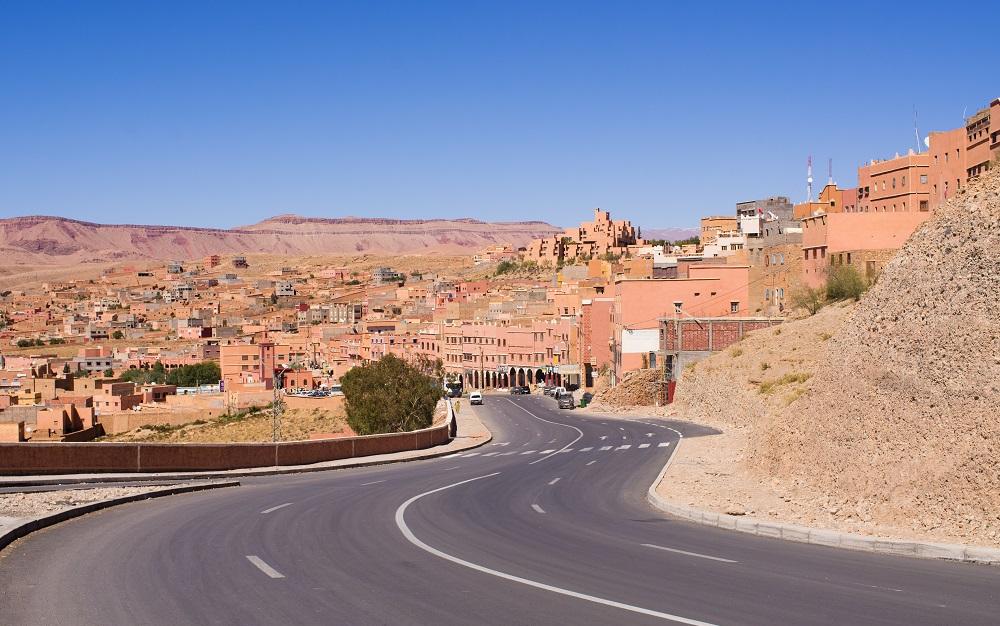
Morocco: Casablanca
Thanks to our QCAM5 "Don't Block the Box" solution, Macq successfully implemented traffic management measures at junctions along a National Route in Casablanca, Morocco. This entails traffic lights taking into account congestion within an intersection, allowing additional time for blocked vehicles to clear the area.
Thanks to its QCAM camera systems and a dedicated emphasis on smart mobility, Macq presents a stand still solution to ensure a substantial impact in optimizing traffic flow both day and night!
Belgium: Zaventem
In Zaventem, the municipality installs smart cameras to monitor cut-through traffic. A survey among residents showed that this was one of the annoyances in the city located near Brussels. Three cameras have been installed in 2023 and the first results are here, with a drop in road traffic offences in controlled areas. "By installing cameras, cut-through traffic is monitored", says the competent councilor Bart Dewandeleer (CD&V). "This is how we look at who is or is not allowed to be in a specific street.”
This type of system is typically what Macq can offer to cities in terms of safety and Smart Mobility.
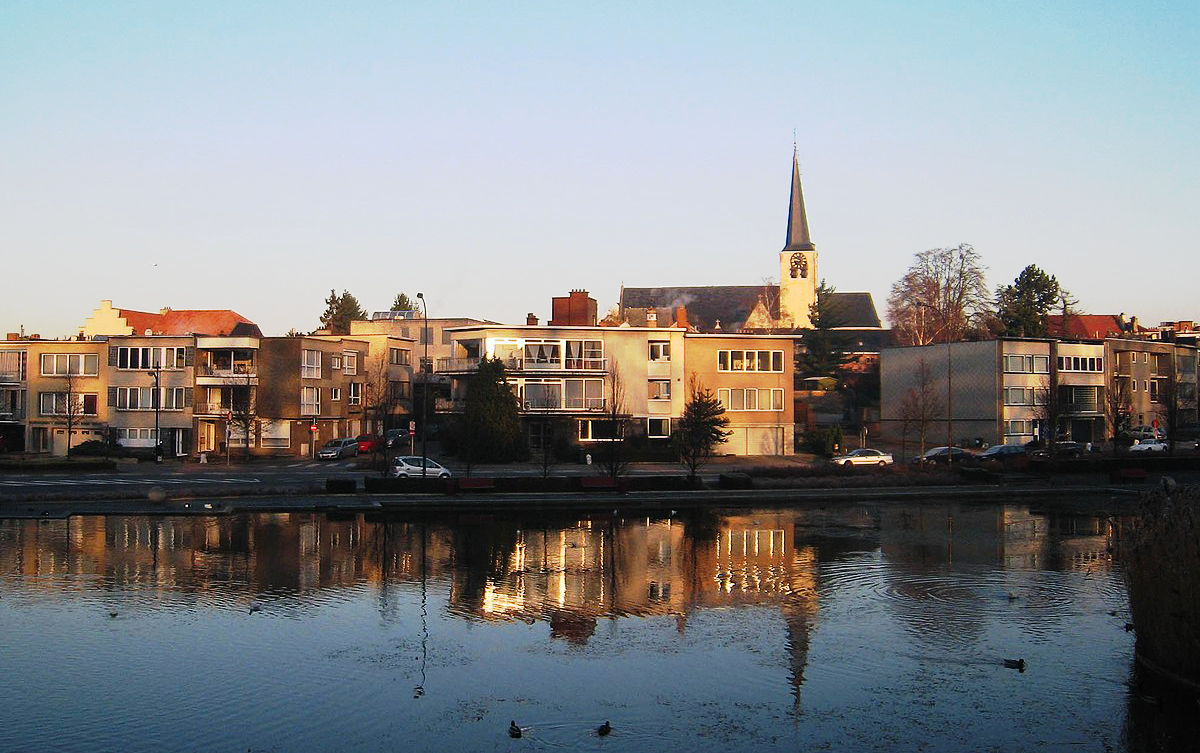
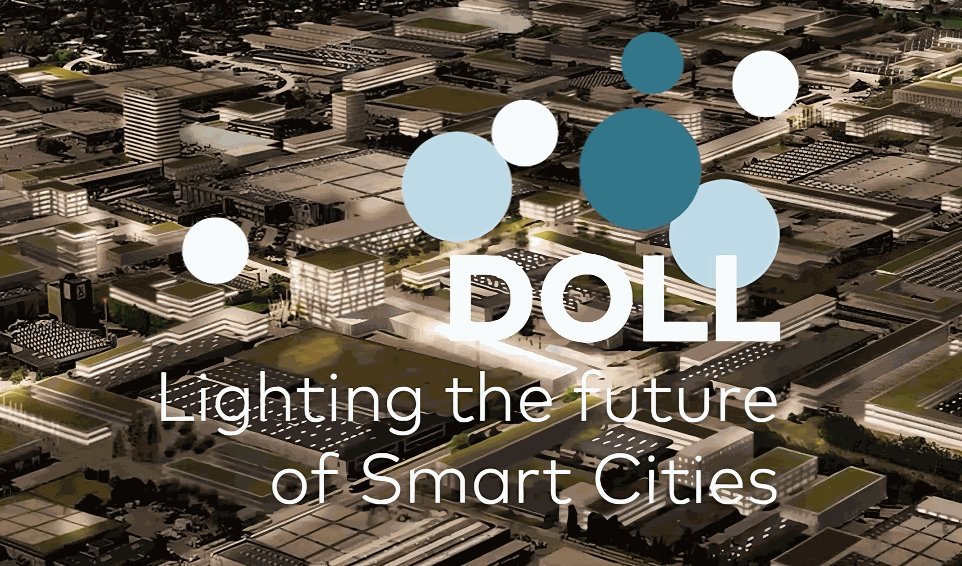
Denmark: Macq with DOLL Living Lab Project
Macq plays a role in the Danish "DOLL Living Lab" project, seamlessly integrating the most extensive Living Lab dedicated to intelligent outdoor lighting and Smart City technologies across Europe. This feat is accomplished through the incorporation of 2 x QCAM5 cameras. DOLL initiative effectively bridges the gap in the innovation chain by fostering collaboration between public and private entities on a neutral platform. In this environment Macq's contributions stand out.
The project serves as
a prime showcase for the comprehensive modularity inherent in Macq's solutions,
particularly in the realms of Cameras and M³ solutions designed for smart
cities. The testing phase encompasses a diverse range of functionalities, including
instant speed measurement, vehicle classification with the ability to detect
variations in type, colours, make, and model. Additionally, it covers aspects
such as travel times and global analytics, underscoring Macq's commitment to
advancing the capabilities of smart city technologies within the DOLL Living
Lab.
Belgium: The Belgian Federal Police use our cameras and our M³ Back Office
The Federal Police is using our cameras, mounted on bridges or on the side of the road, to identify wanted vehicles and take immediate action. Using an tailored version of the iCAR camera, the Federal Police has its own autonomous system for reading number plates which creates a data base of Police wanted vehicles. From the top of a bridge or the side of the road, our camera scans passing vehicles and detects cars wanted by the Police, sends an instant message by radio to a waiting Police vehicle, the Police vehicle then proceeds to pursue the wanted car.
France: Access Control to City of Bordeaux ring road
The Bordeaux ring road was systematically subject to traffic jams at peak times. In order to limit these inconveniences, the Bordeaux road authority has entrusted Macq with the implementation of ramp controls. The traffic lights allow vehicles to pass intermittently, depending on how busy the main road is. This control is based on the algorithm used to try to keep the main road below its saturation threshold.
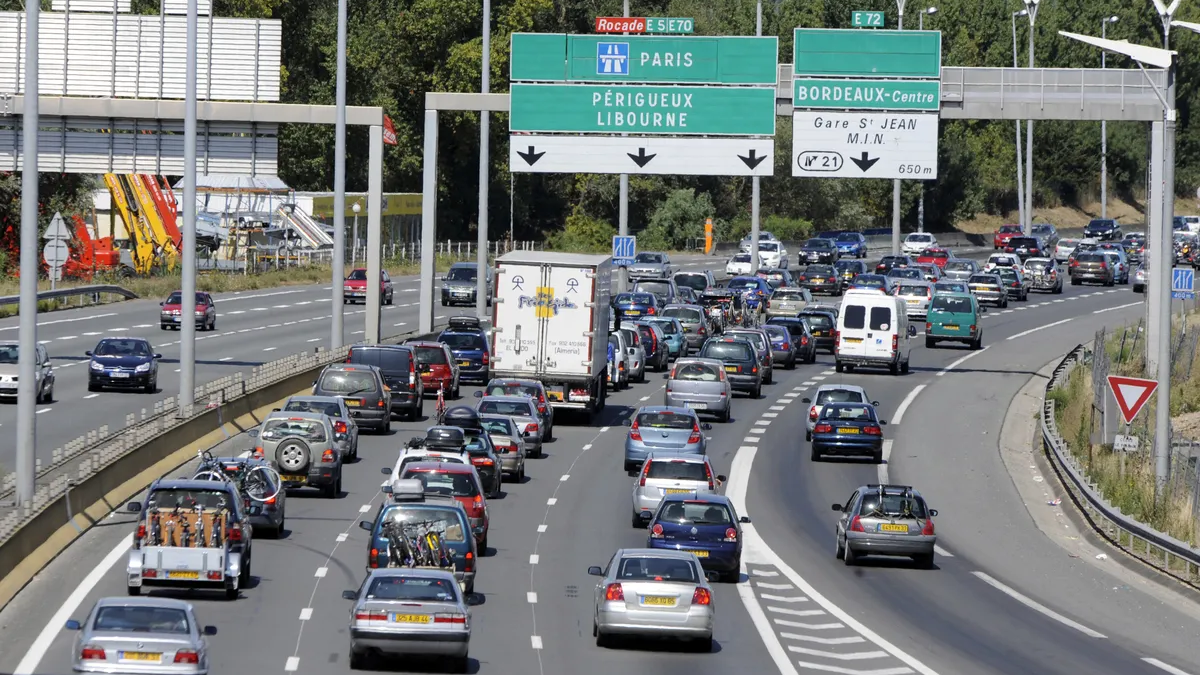
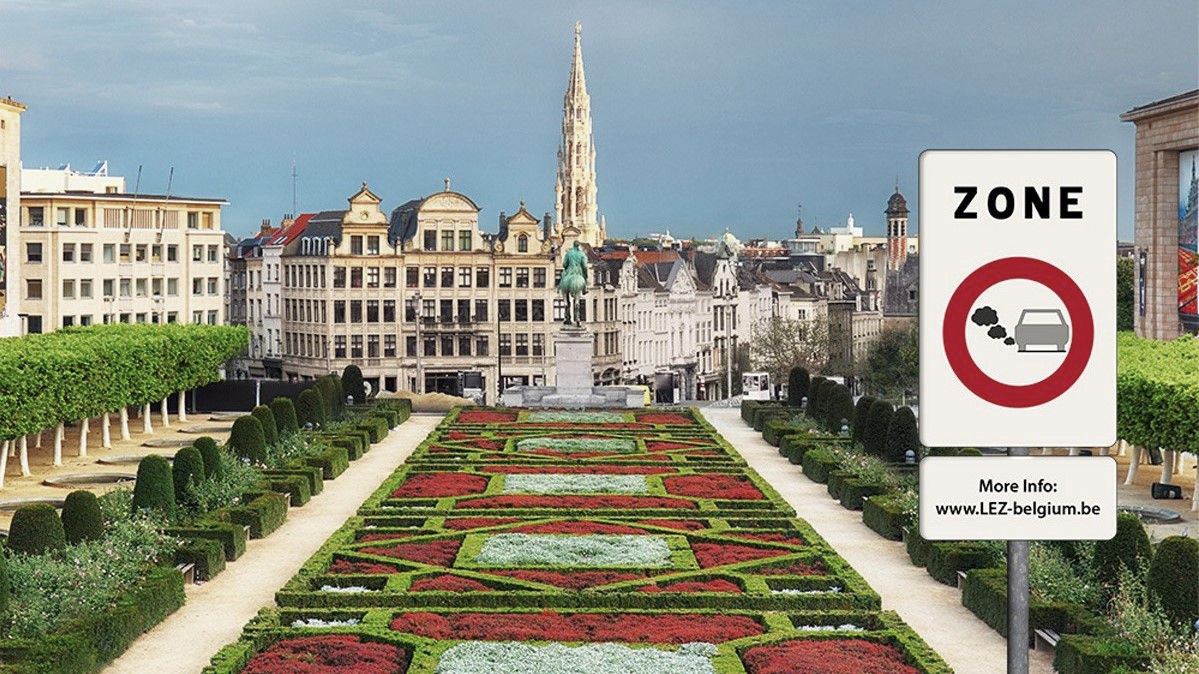
Belgium: Brussels' Low Emission Zone
Like Berlin and Paris and other cities, Brussels has implemented a low emission zone to improve the city's air quality. Macq technology - with more than 300 iCAR CAM cameras and the powerful Macq Mobility Manager software (M³) - has been chosen for this. Since January 2018 the most polluting vehicles are banned from the Brussels-Capital region. In the first phase, the ban will only apply to very old diesel vehicles. The rules will become more stringent in later years. The progressive implementation of the low emission zone will give individuals and businesses affected by the measure time to replace their old vehicles and adjust their mobility behaviour.
Flemish Traffic Management
The Vlaams Verkeer Centrum is the Flemish traffic management centre based in Antwerp. Macq has installed a large number of systems in this centre to manage tunnels, collect traffic data and monitor the Antwerp ring road. The Flemish region was looking to increase traffic fluidity and safety in its roads and tunnels. The systems installed by Macq automate equipment operation in Antwerp’s tunnels and ring road. They also collect traffic data and transmit this to the Vlaams Verkeer Centrum. Further, the Flemish region has entrusted Macq to implement a dynamic management system for its major roads surrounding the city of Antwerp. VMS and dynamic signs are managed from the control centre and control traffic flow on a lane by lane basis. It informs drivers of any accidents, traffic jams and roadworks.
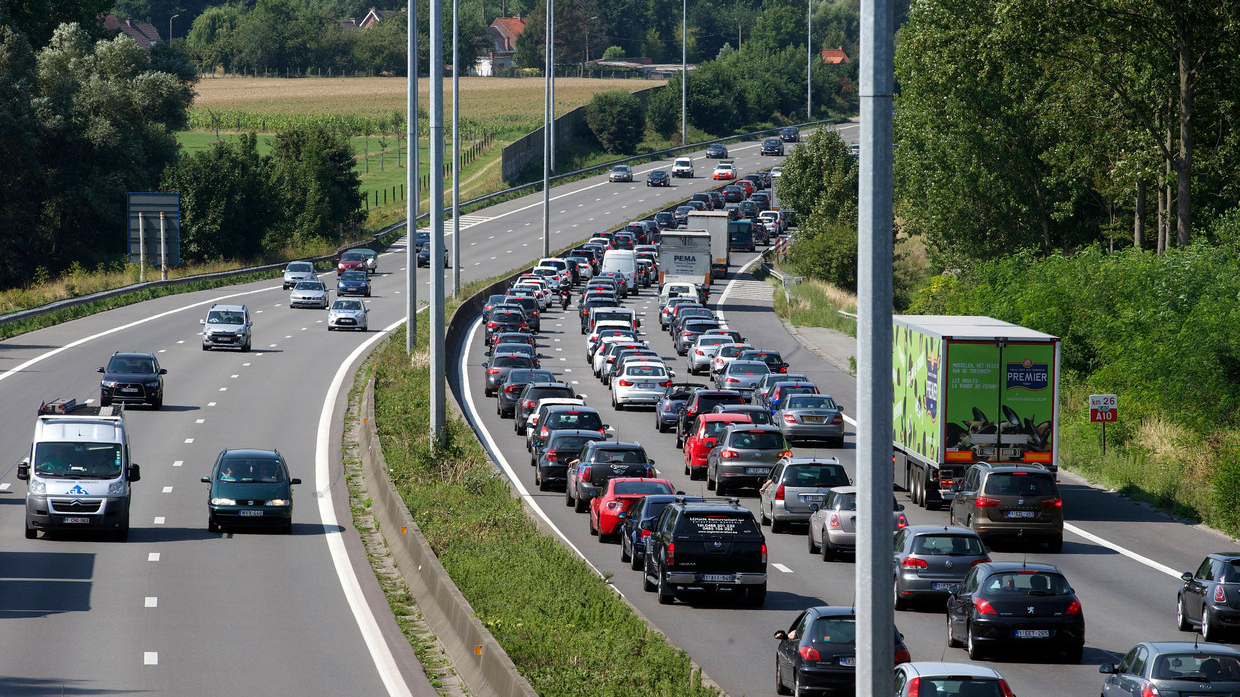
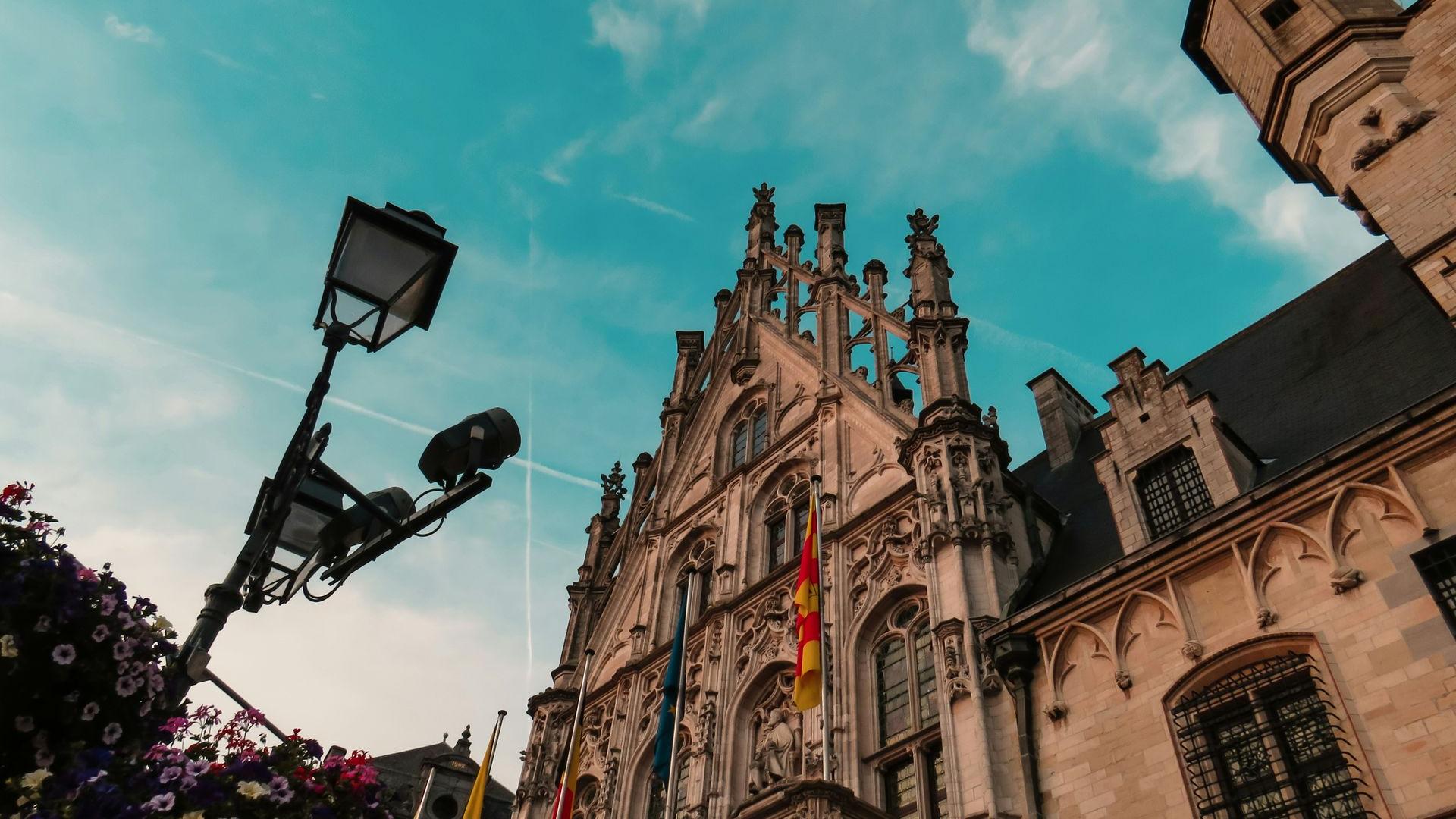
Belgium: Car-Free Zones in the City of Mechelen
To keep the city of Mechelen pleasant to live, accessible and safe, a completely new traffic plan was introduced. Vehicle access to numerous streets was prohibited during certain periods of the day to reduce the amount of traffic in the city and improve the air quality. The city of Mechelen has achieved an important step in improving its sustainable and smart mobility. Less than two years after the introduction of the car free zones, a first assessment was carried out. Several criteria were assessed. Traffic reduction and air quality measurements were made in conjunction with a resident satisfaction survey analysis following a drop in complaints. Overall the assessment was positive. A few minor adjustments were made to respond to the main remarks. Both the procedure and the online application have now been simplified, access for disabled people made easier and an additional car park provided. About a hundred Macq iCAR cameras together with M³ back-office are supporting the city's mobility policy.